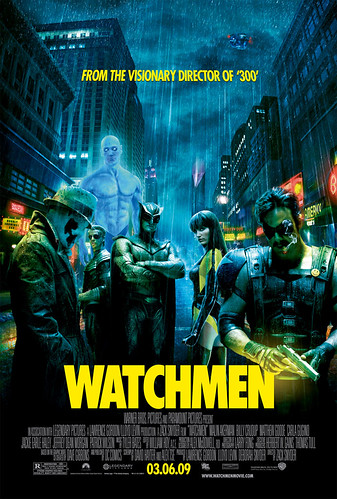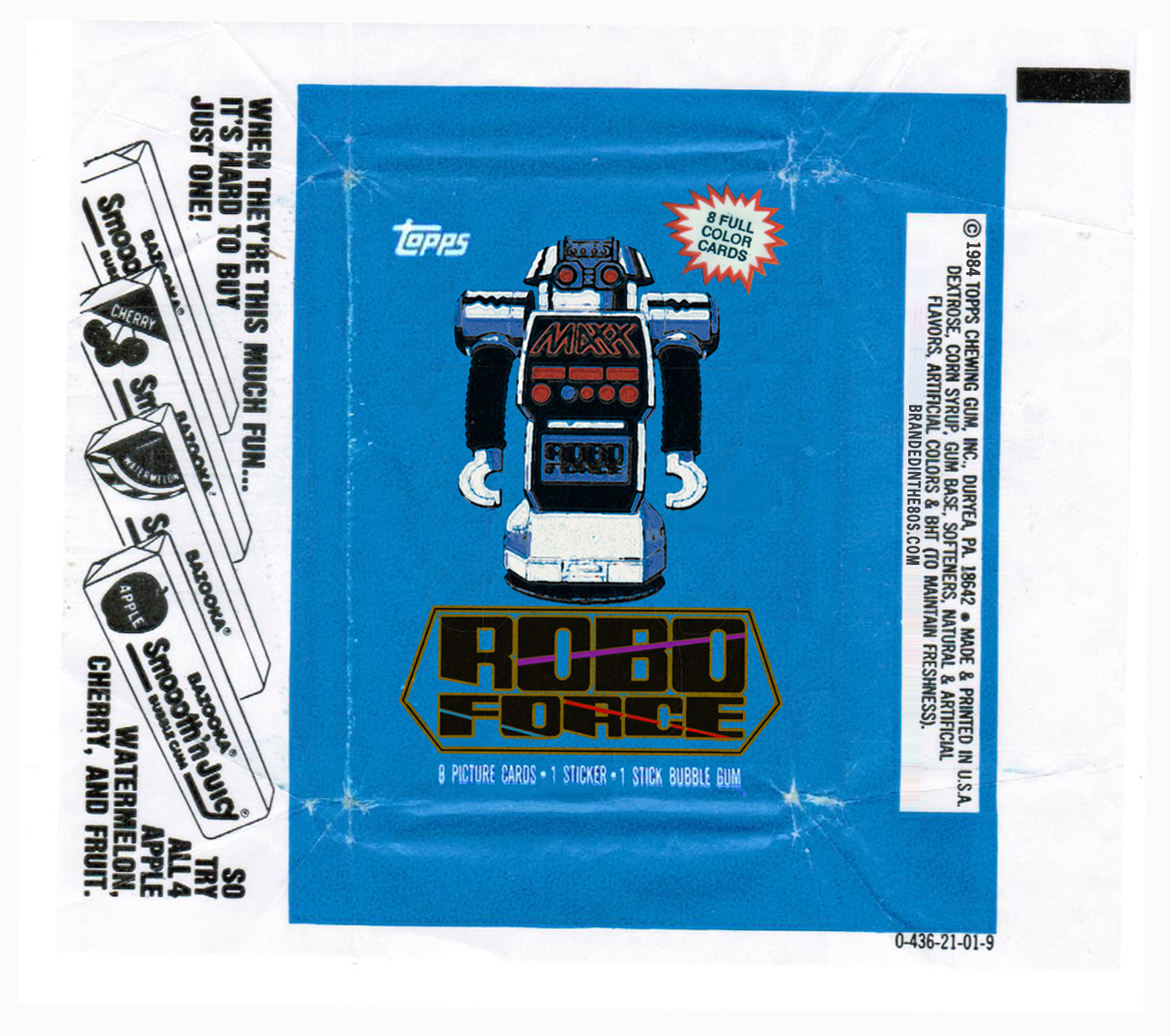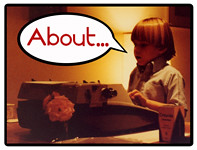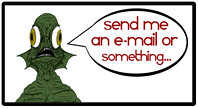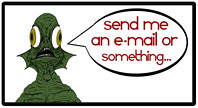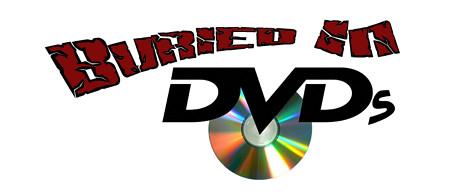
If there’s one thing that I lament about the film-going experience as I get older, it’s that I move further and further away from the boy who used to watch movies with unquestioning wide-eyed amazement. When I turned thirteen I started looking at film with a slightly more critical and as the years packed on with an increasingly cynical eye. It’s a very rare experience for me to walk into a film without the baggage of 20 odd years of cinema watching experience, comparing and contrasting to genre and style. It’s hard to not have a jaded outlook, in particular when I have any sort of vested interest in the material, and growing up a comic book collector during the 80s and 90s it’s hard not to have such an interest in a film adaptation of the Watchmen.
More importantly, if this film accomplishes nothing else, it has made me question the point of adaptation in general. I can’t claim to completely understand it, but the yearning to see stories from various other media adapted into film is incredible for me. As a pre-teen I couldn’t think of anything more exciting than seeing the Lord of the Rings made into films. As a comic collector I burned to see my favorite franchises turned into major motion pictures, and it’s a feeling that’s hard to shake to this day, especially in the wake of the Watchmen adaptation. But when I stop and truly think about what adaptation requires, and what it ultimately offers, I have to wonder just how pointless it is. What is the point of making a film like the Watchmen when I can read the comics the way they were intended to be taken in? Is it to capture new readers of the comic, to hold up the greatness that a lot of us believe the Watchmen holds and force it on an audience that would only take a chance on it in the film medium? Is it supposed to outshine the original? As someone who has already experienced the story in its original form I have to say that no matter how spot on the film was, it would only ever be something that can come close to the original, but never supersede it. The original, for what it is, has little in the way of flaws, and doesn’t need to be told any other way. It can only ever be a much quicker way to experience the story, something that is antithetical to the original work. If I wanted to get somebody to experience the story, I’d just give them the book. At the end of the day, the Watchmen is a specific story that works as it was created and any adaptation would just pale in comparison. It isn’t something like Spiderman, which is an icon, a concept of a character that can be used to tell any number of stories. For someone who is not intimately versed in super hero comics to catch the film, well I think they’d be missing the point of the story anyway.
When I walked out of screening with my wife, my first reaction was that the movie was all muffin top and no actual muffin, but let me back up a second. All the beats were there in terms of story points, and visually the movie is stunning. I had the same reaction that a lot of comic fans seem to be having with the flick in that it’s amazing to see the characters from the comic leap to the screen picture perfect. Again, even this reaction is because of the baggage I’m carrying from watching super hero movies for the last 30 years. Up until the mid 90s it was very rare that a comic book character could be visually translated onto the screen with such faithfulness to the source material. The Christopher Reeve Superman was good, but only about half right. The Michael Keaton Batman, though special in his own right, was a bit off from the caped crusader in the comics. When you get right down to it, the foam rubber Teenage Mutant Ninja Turtles from the first live action film were some of the very first truly amazing visual translations of characters from comic to screen. Over the past decade this has been a focus that filmmakers seem to increasingly nail on a consistent basis, and for a group of characters like the Watchmen to make the transition almost wholly intact, is incredible, if only because the source material isn’t ripe for adaptation. For a movie studio to put as much time and money into the translation without the benefit of a huge merchandising machine in place in this day in age is wild.
It’s the visual culmination of years of trying to perfect the balance between pleasing the fans, logistics of production, and advances in technology. The thing is that 30 years of super hero films have trained the audience that anything better than horrible is just fine with us. So a picture perfect visual adaptation of the Watchmen isn’t an aspect that the film can really rest its laurels on. The other celebrated aspect to the film is the fact that it managed to keep enough of the tone and content to garner an R rating. The original comics are unrelentingly “adult” in content; in particular when compared to the rest of the output from the publisher (DC comics) at the time it was published. When you get right down to it, super hero comics are aimed at a young audience, and that was one of the conventions that the Watchmen sought to challenge. The hurdle the movie is attempting to leap across is the fact that most films these days are specifically molded to appease the sensibilities of the largest possible audience, which is why most “adult” fare is targeted to a PG-13 crowd. Show just enough to appease those with darker sensibilities, and hold back just enough so that the content is suitable for most teenagers, and bang, that mystically profitable age range is targeted. Unfortunately, most uncompromised stories don’t fit very easily into any sort of age specific category. Life in general just doesn’t fit into predetermined boxes all that well. So the fact that the Watchmen is rated R, and a deservedly hard R, could be viewed as another accomplishment on the path to an uncompromised adaptation. Again, though, a laurel not to be rested upon. Side-stepping the mediocrity of the film industry, as admirable as it is, shouldn’t be celebrated, it should be expected. Even if it were, the violence and adult content in the Watchmen comics are not a selling point. I think I’d have to philosophically side with Sam Peckinpah on this one and admit that these characteristics of the original comics are an abhorrent necessity in conveying the story. It’s not cool to watch Rorschach chain a child murderer to a hot water heater in a building he just set afire, giving him a hacksaw as a means to disfigure himself with the possibility of an uncertain escape. It’s not cool to watch as an inmate’s throat is cut with a box cutter in order to get him out of the way of cell bars that need to be acetylene torched. It’s not cool watching a woman brutalized and half raped for character development; it’s necessary to tell the story that Alan Moore set out to write, and it’s there to disgust the reader.
So what’s left? Story, acting, tone (not just of the R rated variety, but in terms of overall plot and world), and execution (in terms of direction), this is where the film starts to fall apart for me. It’s been awhile since I’ve read the original comics, and after walking out of the screening I felt like a lot was left out, though I couldn’t put my finger on exactly what. I know of the fan gripes, that the Black Freighter comic-within-a-comic story was excised for the theatrical cut (to be released on DVD as a cartoon later this month, along with the possibility of be re-cut into the expanded edition of the Watchmen film on DVD), that the Newsstand and the relationship been the proprietor and the kid who reads the comic was left unexplored, the dropping of the prison psychiatrist’s back story, and probably the most popular gripe, the alteration of the final sequence in the film and dropping of the giant squid Macguffin. Those aspects didn’t bother me as I’m much more concerned with the core story, not all the little details. I mean when you get right down to it, it would simply be impossible to include all the plot threads and details, there just isn’t enough time to incorporate it all. No, an adaptation from a long format to a short calls for cuts to be made, fat, no matter how interesting, to be trimmed for the core story to come through. So does it? I have to say yes. All the “important” stuff is there, the dynamic between Rorschach and the rest of the Watchmen (and the rest of the world for that matter), Dr. Manhattan’s abandonment and eventual rediscovery of humanity, the dissection and exploration of super heroes as saviors or gods, the futility of doing things the right way, and an expose on the dark depths to which humanity can find itself when it loses its way on the path to righteousness and moral right. All of the landmark elements from the comic series are represented, yet the film still seems (at least to me) to lose its own way in the midst of adaptation.
There are a couple themes that seem to have been partially dropped, and an aspect to the original story that can’t translate verbatim and possibly could have been redirected but wasn’t. First off, I don’t think the overall tone of the story was kept intact in the translation. Reading the original comics isn’t a fun beautiful experience on the whole. I believe that many of the characters are drawn (both literally and stylistically) to be so ugly that it’s hard to follow their stories without disgust. In fact I think it’s really hard to pick a character that as a reader you can truly get behind so that the focus isn’t placed on watching that one character interact within the world created, but instead for the reader to be forced to watch all aspects of the world not unlike the social conditioning of Malcom Macdowell’s character in A Clockwork Orange. If there is a hero in the book it’s the bond between Dan’s Night Owl II and Rorschach. Aspects of both characters are admirable, but neither is strong enough to carry the role of a hero for the story. Back to the point, the world of the Watchmen is ugly and dark, it isn’t polished, and when it appears to be it’s just a thin veneer covering something rusty and broken. Zach Synder made a conscious effort to adapt the material in such a way that this gritty ugliness is polished and beautiful to watch. Scenes are set to overbearing music cues that are at once both too perfect and too pop for the good of the story. The soundtrack is full of hit songs and memorable anthems and don’t speak to the world of the film at all except in the most obvious and coincidental ways. The one section in which this really worked for me was the opening credit sequence after the brutal murder of the Comedian, which is a couple minute montage set to Bob Dylan’s The Times They are a-changin’ (illustrating the formation and ultimate failure of the Minutemen super hero team, and their impact on society.) It’s heavy handed, but it works.
Unfortunately, there are too many sequences that follow during the next hour or so that keep up this absurd music video-like quality to the film so that the world of the Watchmen isn’t given a chance to breath on its own. It’s suffocating, and in the end the obvious tone to the music is what informs the tone of the scene, not really what’s playing out before your eyes. At its most inhibiting, the music can completely tear you out of the film you’re watching and put the viewer in the mindset of other films. The flash back sequence of a 70 foot tall Dr. Manhattan obliterating Vietcong troops set to Richard Wagner’s Ride of the Valkyries is such an obvious reference to Apocalypse Now that it borders on pretentious (“You’all like crazy overblown scenes from films about the war in Vietnam? Well here’s a crazy overblown scene about the war in Vietnam, set to the music from that original example!”)
The cinematography itself is also so pretty and picture perfect that it does nothing but damage the tone of the story being told. Everything is so rich and colorful, every movement of the characters is so choreographed and precise that it’s a wonder to behold, awe inspiring really. But honestly, I don’t think this is what we’re supposed to be feeling while watching the film or reading the story. I think the blame doesn’t necessarily fall with the director so much as the source material which is being adapted. If there is an obvious downfall of the comic book medium it’s in the limitations with which the storytellers and artists have to tell a story. The medium emulates life, but it’s forced to take snapshots of movement and moments, and begs the reader to read between the panels. Comic pages end up looking like a collection of all the most perfect moments imaginable in a story, but by nature it almost has to be (where film doesn’t.) Also, during the 80s (in particular) mainstream comics were still on the precipice of achieving a more realistic coloring style and were still shackled by the garish color conventions that printing had to offer at the time. Where the film takes these cues and relishes in them, is when I believe it becomes a misinterpretation of the limitations of the medium. It has to be very difficult as an artist to keep yourself from picking the absolutely perfect moments to draw in a comic. Aesthetically specking this is process an artist normally goes through to make interesting and pleasing artwork. To a degree this can translate to film in general, but it’s only one choice of many to convey particular moods and tone. For whatever beauty there is in the grittiness and violence in the original Watchmen comic, in the picture perfect snapshots of moments and it’s vividly colored world, I think it has to be weighed against how unsettling it was when taken in context of practically every other super hero comic being published at the time. This beautifully rendered chaos becomes ugly in this comparison.
As for the path not taken with the adaptation (that I alluded to above), another key factor of the original comics are their deconstruction of the super hero mythos within comics in general. This deconstruction just doesn’t translate well to film because there are too many factors to take into consideration for an audience not steeped in comic history, and it’s too meta (for lack of a better term.) It won’t work for people who aren’t steeped in these conventions because the concepts aren’t novel to the history of cinema (which obviously wasn’t a concern of Moore when writing the comic.) Cinephiles and the majority of film goers have been inundated with truly realistic depictions of flawed heroism and the dangers of getting behind anti heroes,a nd honestly I don’t think that audience distinguishes all that much between a character’s chosen occupation. Flawed cop or caped crusader, it’s all the same to most people. I believe there was a chance to redirect this deconstruction at a more clearly defined target, the super hero film as a genre in particular. Sure, the content of this deconstruction would deviate some from the Watchmen source material, but the heart and soul of one of that source material’s original aims would be kept intact. I truly think that as a piece of “important” literature, the Watchmen’s interpretation of the super hero ladden world is one if it’s crowing acheivements.
Getting back to the misplaced tone of the film, there are distinct choices to portray certain aspects to the story in a much more grandiose manner that mar the tone. There is little super heroic fighting in the original comics for instance, and when Synder adapted the material he chose to heighten these moments, turning them into exactly what the original comics were intending to deconstruct and downplay. Watching Silk Spectre II and Night Owl make an assault on a street gang or a maximum security prison is like watching all of the horribly unrealistic action that is common to films such as the Matrix, X-Men, and Ghost Rider (not to mention that the methodology and consequences of the violence is increased.) These non-super powered characters are doing truly unrealistic and super powered things like punching through concrete, and throwing people clear across rooms. Watching Rorschach scale the side of a building evokes the feeling one gets when watching Spiderman do the same thing, and that is a terrible misinterpretation of what the Watchmen is all about.
I will say that incongruous to my feelings on the adaptation above, I loved the change in the ending of the film. Whereas the giant-squid-alien Macguffins that are used as a doomsday device/deterrent in the original comics are a terribly interesting way of bringing the final outcome of the story to fruition, I am completely blown away by the poetry Snyder managed to squeeze out of the new destructive device. Having Ozymandias trick Dr. Manhattan into building devices that would emulate his powers of atom level disintegration under the guise of generating a free source of energy is genius. When the “bombs” go off vaporizing many major cities in the world, both putting into play Ozymandias’ ultimate goal of world peace through banding together against a common foe, and framing Manhattan for this destruction in the process (by using his power’s signature and instrumenting a portion of his loss in humanity and eventual exile from Earth), Snyder effectivly turns Jon Osterman into God, the ultimate deterrent for war. Synder taking such a stab at Christianity is so much in the vein of what Moore was doing with the original Watchmen comics that it almost makes up for the fast and loose way he handled the build up to the reveal of the story, almost.
I also have to say that again, adaptation issues aside, a good majority of the characters do translate well to screen. Jackie Earl Haley as Rorschach is amazing (though a tad too emotional when compared to his monotone print counterpart), more so when not wearing the mask. Patrick wilson’s Night Owl manages to capture the essence of the original character, at some times more convincingly than int he comics. Some don’t fare so well though, particularly Malin Akerman as Laurie Jupiter. Her portrayal of the character is too strong and confident, she’s played as a sex bomb and doesn’t seem to be the same broken down dependent character from the original comics.
All in all I still just have to wonder what the point of the whole experience was.

